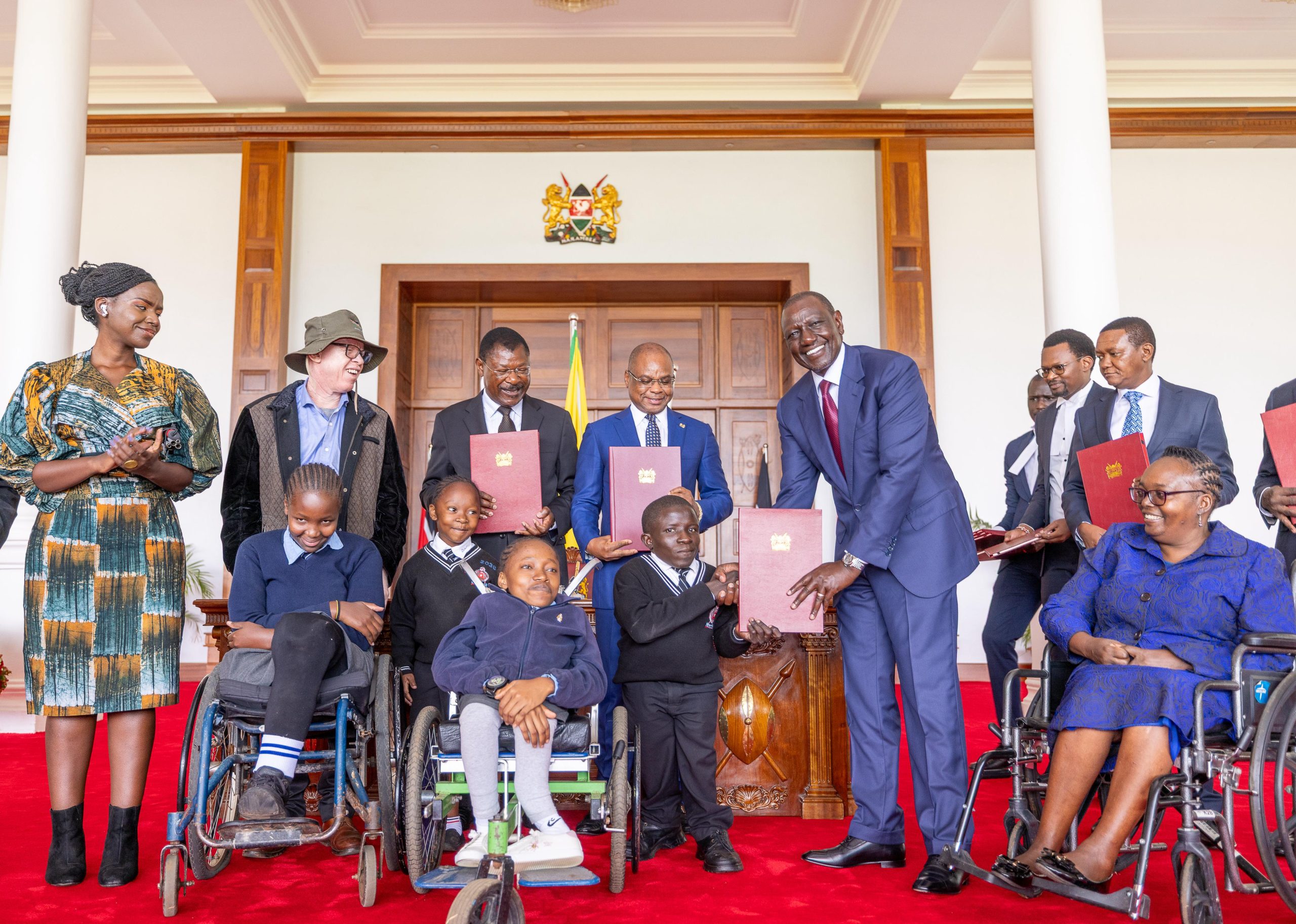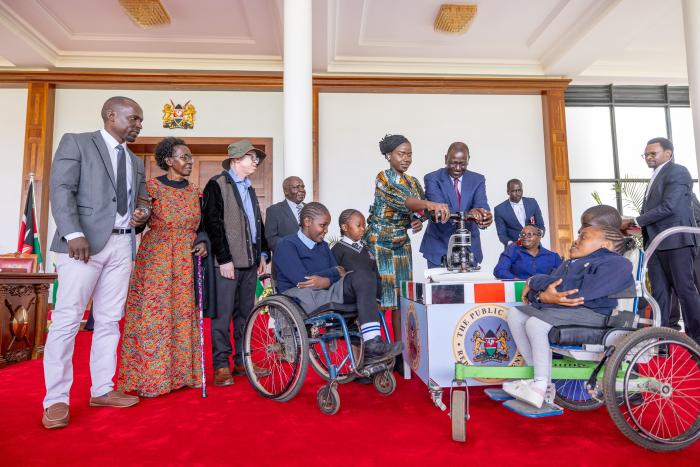
President Ruto assents to Persons with Disabilities
President William Ruto has assented the Persons with Disabilities Bill that guarantees the rights of PWDs to education, employment, healthcare, political participation, and access to buildings and public spaces.
Speaking at State House Thursday during the signing of the bill, President Ruto reiterated government’s commitment to translating the provisions of the law into tangible improvements in the lives and welfare of persons with disabilities.
The Head of State directed the Public Service Performance Management Unit at the Public Service Commission to reinstate the Disability Mainstreaming Performance Indicator in performance contracts, as part of the efforts to strengthen disability inclusion in the public sector.
“We are committed to upholding the dignity and rights of persons with disabilities (PWDs) in our country. By strengthening our legal frameworks, we are dismantling the systemic obstacles that have long excluded them from vital services and opportunities.”
According to the 2019 National Housing and Population Census, the number of individuals with disabilities above the age of five stood at just under one million, about 2pc of Kenya’s total population, while globally, it is estimated that they represent 15pc of the world’s population.
The President noted that assenting to the Persons with Disabilities Bill into law concludes the long journey of repealing the Persons with Disabilities Act No. 14 of 2003, and marks the beginning of a vital progression towards promoting and safeguarding the rights of citizens with disabilities.
“This law is both comprehensive in scope and progressive in vision. It affirms the rights of persons with disabilities to education, employment, healthcare, political participation, and access to buildings and built environments.” He said.
Adding that: “It also mandates stronger enforcement mechanisms, clearer accountability, and enhanced representation of persons with disabilities in both national and county governance structures.”
 Beyond giving fuller expression to Article 54 of the Constitution, the highlights in the new framework include a restructured National Council for Persons with Disability, devolution of functions related to persons with disabilities, recognition and support for caregivers, greater access to justice and enhanced legal frameworks in respect of PWDs, and robust economic safeguards.
Beyond giving fuller expression to Article 54 of the Constitution, the highlights in the new framework include a restructured National Council for Persons with Disability, devolution of functions related to persons with disabilities, recognition and support for caregivers, greater access to justice and enhanced legal frameworks in respect of PWDs, and robust economic safeguards.
These include exemptions and incentives for the benefit of PWDs to foster greater economic and financial resilience and to mitigate vulnerability.
Additionally, the law fortifies the legal framework protecting the rights of persons with disabilities by offering clearer definitions, strengthening protections against discrimination, and mandating the implementation of affirmative action measures across various sectors.
He also signed into law the County Governments Additional Allocation Bill, 2025, which provides more funding to counties to promote equitable resource distribution and enhance devolved service delivery.
